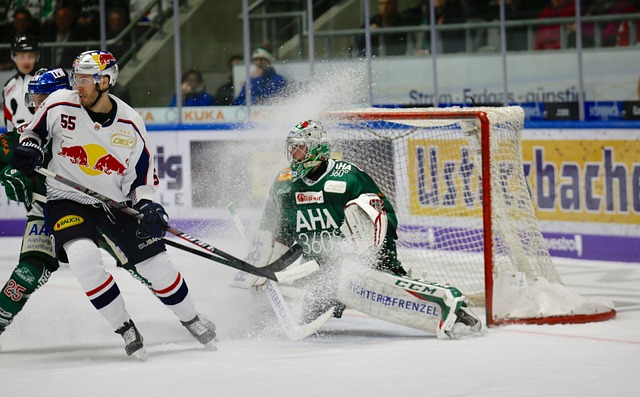There’s a surprising connection between the fast-paced world of hockey and the strategic landscape of poker that can enhance your skills in both arenas. As you explore into this guide, you’ll discover the vital skills that overlap between these two sports, focusing on the mental resilience, quick decision-making, and adaptability needed to excel. By honing these abilities, not only will you improve your performance on the ice or at the card table, but you’ll also gain a deeper appreciation for the synergy between these seemingly different games.
Understanding the Basics
For anyone looking to excel in hockey or poker, starting with a strong understanding of the basics is vital. You must grasp the fundamental rules and strategies of each game to build upon your skills effectively. Mastering these basics will set the foundation for you to become a more strategic and competitive player.
Types of Hockey
Hockey encompasses various formats, each with distinct characteristics and styles of play. Understanding these can enhance your appreciation of the game as well as your performance on the ice.
- Ice Hockey
- Field Hockey
- Roller Hockey
- Floor Hockey
- Bandy
| Type | Description |
| Ice Hockey | Played on ice, typically in pairs of teams with six players each. |
| Field Hockey | Played on grass or artificial turf, each team has eleven players. |
| Roller Hockey | Played on roller skates, popular in various international formats. |
| Floor Hockey | Played indoors with plastic sticks and a lightweight ball. |
| Bandy | Similar to ice hockey but played with a ball instead of a puck. |
The understanding of these types will broaden your hockey horizons. Knowing the differences helps you adapt your play style accordingly, improving your performance in any format.
Types of Poker
The world of poker is vast, encompassing numerous game formats, each with its own set of rules and strategies. Familiarizing yourself with the various types is necessary for developing your skills and finding the game that suits you best.
- Texas Hold’em
- Omaha
- Seven Card Stud
- Five Card Draw
- Pineapple
| Type | Description |
| Texas Hold’em | The most popular variant where players get two hole cards and five community cards. |
| Omaha | Similar to Texas Hold’em but players receive four hole cards and must use exactly two. |
| Seven Card Stud | No community cards, players receive individual cards over multiple betting rounds. |
| Five Card Draw | Players receive five cards and have the chance to exchange some or all for new cards. |
| Pineapple | A variant of Texas Hold’em where players discard one of their hole cards after a betting round. |
Mastering different types of poker increases your strategic prowess. This allows you to tailor your approach and exploit your opponents’ weaknesses in varying formats.
More About Types of Poker
Poker players should engage with each variation to discover which they prefer and excel in. Each type presents unique challenges and requires distinct strategies, contributing to a player’s overall skill set.
- Studying game strategies can significantly enhance your decision-making.
- Exploring betting structures helps you adapt to different play styles.
- Understanding hand rankings is necessary for every type.
- Incorporating psychology helps in bluffing and reading opponents.
- Participating in live games develops your real-time skills.
| Strategy | Description |
| Game Strategy | Different games require unique strategies to succeed. |
| Betting Structures | Understanding limits helps shape your betting approach. |
| Hand Rankings | Knowledge of hand rankings is fundamental to making informed decisions. |
| Psychological Play | Using psychology can tilt your opponents in your favor. |
| Live Practice | Real-time play helps develop intuition and adaptability. |
Poker is not just about the cards; it’s about mastering the techniques that apply to each variant. Engaging with diverse poker types will cultivate a well-rounded skill set, enhancing your overall game.
Essential Skills for Success
Clearly, achieving success in both hockey and poker demands a unique combination of skills. You must adapt to rapidly changing situations, harness your physical and mental strengths, and develop a strategic mindset that allows you to outmaneuver your opponents. Balancing teamwork and personal proficiency is vital, ensuring you are not only a formidable player but also a valuable teammate or opponent at the poker table. Mastering these skills will enhance your performance in both arenas.
Key Skills in Hockey
On the ice, your agility, speed, and hand-eye coordination are pivotal. You need to master stickhandling and shooting techniques while also maintaining exceptional awareness of your teammates and opponents. Effective communication on the ice enhances your teamwork, allowing for fluid plays that can lead to scoring opportunities. Staying physically fit contributes significantly to your endurance and resilience during games.
Key Skills in Poker
Clearly, in poker, analytical thinking and emotional control are paramount. You must assess probabilities and pot odds while reading opponents’ behaviors and betting patterns. Bluffing can be a powerful strategy, but it requires a delicate balance between confidence and caution. Consistent practice and understanding of game theory can provide you with an edge at the table.
Skills like patience, observation, and adaptability are vital for excelling in poker. By analyzing your gameplay and that of your opponents, you can identify patterns that influence your decisions. Developing a solid psychological game helps you maintain composure, whether you are on a winning streak or facing losses. Emphasizing these abilities will improve your overall strategy and increase your chances of success at the poker table.
Tips for Mastering Hockey
Now it’s time to elevate your hockey game with some key insights. Focus on enhancing your skills and understanding the sport deeply. Here are some tips to guide you:
- Improve your skating technique for better agility.
- Work on your stickhandling to maintain control.
- Develop your shooting skills for accuracy.
- Engage in conditioning to build stamina.
- Study game footage to analyze gameplay.
Any of these tips can lead to noticeable improvements, so be dedicated in your practice and gameplay.
Practice Techniques
Any effective practice routine is vital for honing your skills. Set specific goals for each session, whether it’s mastering a particular shot or enhancing your endurance. Incorporate drills that mimic game scenarios, allowing you to practice under pressure. Consistency is key, so aim for regular practice schedules while varying your workouts to keep things interesting.
Game Strategy
The success of your hockey performance largely depends on your understanding of game strategy. Implementing smart plays, reading the opponent, and communicating with teammates can greatly enhance your effectiveness on the ice.
Techniques such as positioning yourself advantageously, anticipating plays, and executing strategies like power plays or forechecking will give you an edge. Always stay aware of the game dynamics and be ready to adapt your approach based on what you see unfolding in real-time. By mastering these strategies, you can contribute significantly to your team’s success.
Tips for Mastering Poker
Keep honing your skills with these strategies:
- Practice regularly to build your knowledge and confidence.
- Study different poker formats to understand various strategies.
- Participate in discussions and forums to learn from others.
- Pay attention to your physical and mental well-being.
Any good poker player knows that reading opponents is key to success. Observing their tendencies and behavior patterns can help you make informed decisions about your own strategy. Watch for bets, raises, bluffs, and body language to gain insights into how they play. This awareness allows you to anticipate their moves, increasing your chances of winning.
Bankroll Management
Management is a vital component of successful poker playing. It involves setting limits on how much you can afford to lose and making smart decisions about your stakes.
Bankroll management is crucial to sustain your poker journey long-term. By determining your bankroll size, you should establish a clear set of rules regarding the amounts you gamble and the stakes you play. Always play within your means and adjust your limits based on your wins and losses. This discipline will protect you from extreme swings and keep you focused on strategic improvement while enjoying the game.
Step-by-Step Strategies
All successful athletes and gamers understand the importance of structured approaches to mastering their discipline. By breaking down the journey into manageable components, you can sharpen your skills effectively. Below is a table outlining important strategies for both hockey and poker:
| Hockey | Poker |
|---|---|
| Practice consistent skating techniques | Learn hand rankings and betting structure |
| Focus on teamwork and communication | Understand pot odds and expected value |
| Analyze game footage for improvement | Review past hands to identify mistakes |
Developing a Training Regimen for Hockey
There’s no substitute for a well-rounded training regimen when it comes to hockey. You should focus on physical fitness, including strength, agility, and stamina, while also honing your technical skills through drills and scrimmages. Pairing conditioning with on-ice practice ensures you’re prepared for game scenarios and boosts your confidence in both team dynamics and personal performance.
Building a Winning Poker Strategy
You can enhance your poker success by constructing a solid strategy that incorporates various elements such as position play, table dynamics, and psychological warfare. A well-thought-out approach will help you exploit your opponents’ weaknesses and maximize your winnings.
Strategies for a winning poker strategy should include extensive learning about different playing styles and how they affect your gameplay. By understanding your opponents, you can adapt your approach in real-time. Additionally, always consider your table position—it can significantly influence your betting decisions. Regularly practicing different scenarios, studying hands, and continually reassessing your plays will strengthen your ability to think critically and execute successfully when it counts.

Factors Influencing Performance
Once again, both hockey and poker are heavily impacted by various factors that can determine your success in each game. These influences can shape your approach, strategy, and ultimately, your results. Key elements include:
- Physical conditioning and agility
- Mental resilience and focus
- Knowledge of the game
- Decision-making under pressure
Recognizing these factors is key to enhancing your game in both hockey and poker.
Mental Aspects in Hockey
Performance in hockey hinges on a player’s ability to maintain focus, stay calm under pressure, and adapt to rapidly changing scenarios. Developing a strong mental game enables you to execute plays effectively and respond to opponents’ tactics swiftly, ensuring higher levels of performance when it counts the most.
Psychological Factors in Poker
The mental aspects of poker play a vital role in your overall performance at the table. These include:
- Emotional control and composure
- Understanding your opponents’ psychology
- Self-awareness regarding your own tendencies
- Ability to read facial expressions and body language
The way you manage these psychological factors can often be the difference between winning and losing.
Hockey requires you to harness your psychological skills to outmaneuver opponents, just like in poker where understanding the psychological game can lead to strategic advantages. Key components of success in poker include:
- Maintaining a strong poker face
- Practicing mindfulness to enhance decision-making
- Recognizing the impact of tilt on your play
- Employing bluffing as a strategic tool
The right mental strategies can significantly enhance your performance in both arenas. It is imperative to continually work on these psychological components to elevate your game.
Pros and Cons
Your understanding of the pros and cons of mastering hockey and poker can help you decide where to focus your efforts. Analyzing each skill set provides clarity on their distinct advantages and disadvantages. Below we break down these aspects for both games:
| Pros | Cons |
|---|---|
| Improves physical fitness | Risk of injury |
| Enhances teamwork abilities | Requires time commitment |
| Develops strategic thinking | Can be costly (gear, fees) |
| Boosts emotional resilience | High-stress environment |
| Offers social interactions | May conflict with personal life |
| You can participate all year round | Weather-dependent for outdoor play |
| Access to professional circuits | Intense competition levels |
| Provides a mental outlet | Requires long hours of practice |
| Improves hand-eye coordination | Can lead to burnout |
| Cultivates sportsmanship | Expectations and pressure to perform |
Advantages of Hockey Skills
Skills obtained through playing hockey can directly translate to various aspects of life. You develop physical strength and agility, which sharpens your overall fitness. The teamwork aspect teaches effective communication and collaboration, vital in both personal and professional environments. You also cultivate emotional resilience, as facing high-pressure situations on the ice can help you navigate challenges elsewhere.
Advantages of Poker Skills
Even in the poker arena, your skills can lead to numerous advantages that extend beyond the table. You sharpen your analytical capabilities, enhancing decision-making under uncertainty. The ability to read opponents translates into interpersonal skills that can aid in negotiation or conflict resolution. Your patience and discipline in playing can improve your focus in everyday tasks.
Poker demands keen observation and analytical skills, allowing you to assess risks and rewards effectively. Mastering these skills contributes to better financial management and strategic planning in life. The ability to stay calm under pressure translates well into high-stress environments, fostering a level-headed approach that can benefit your career and personal relationships. Plus, poker teaches you the value of patience, as building a winning strategy often requires a methodical, long-term perspective.













